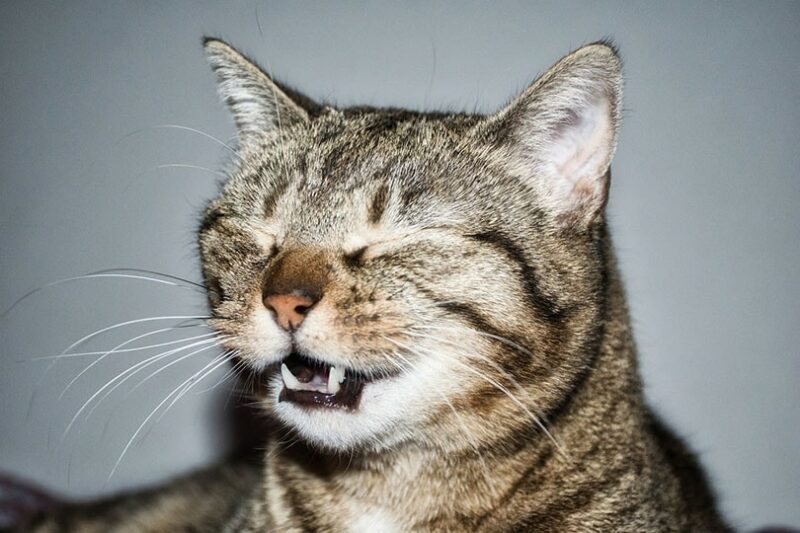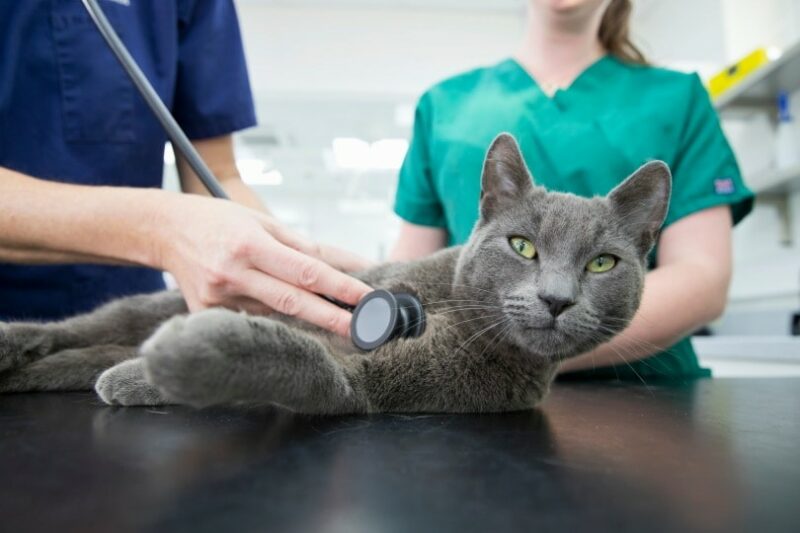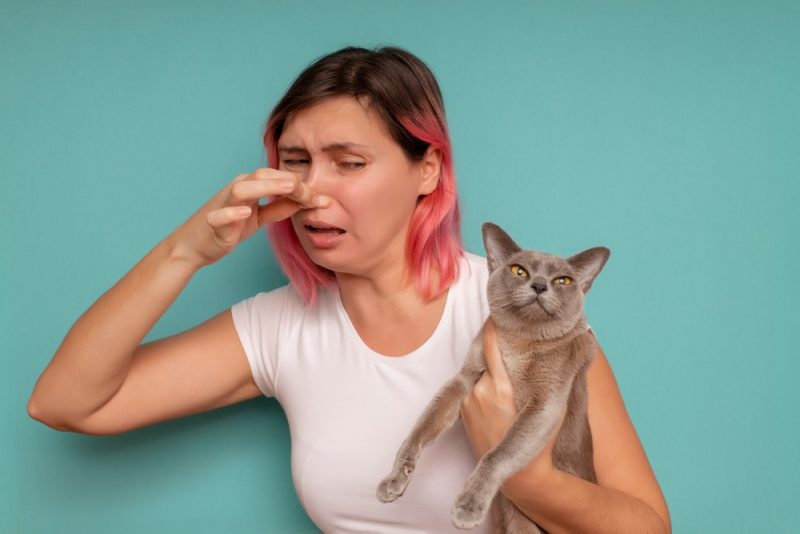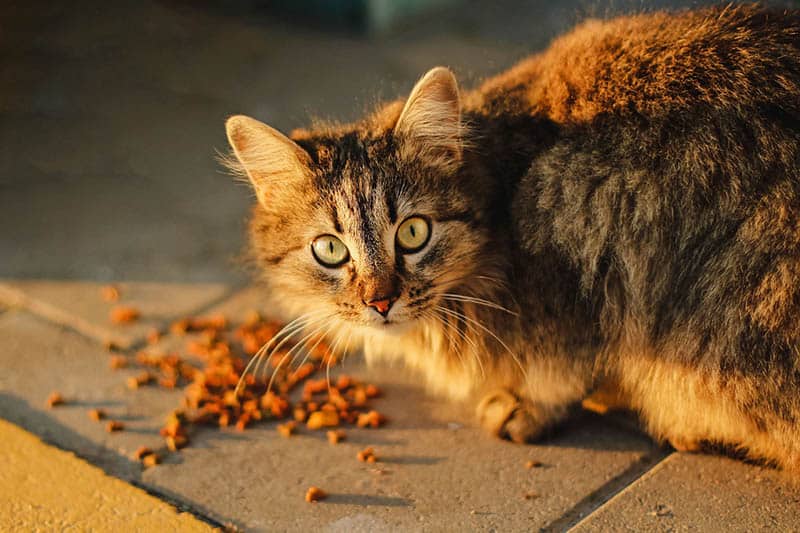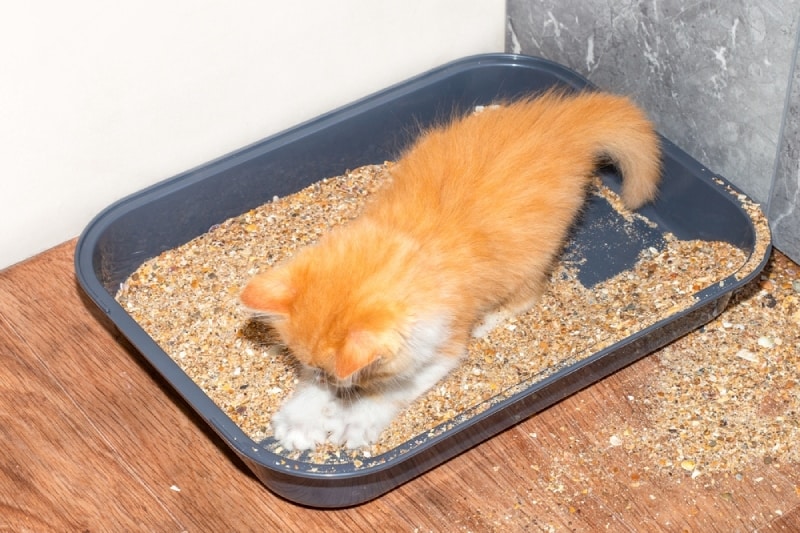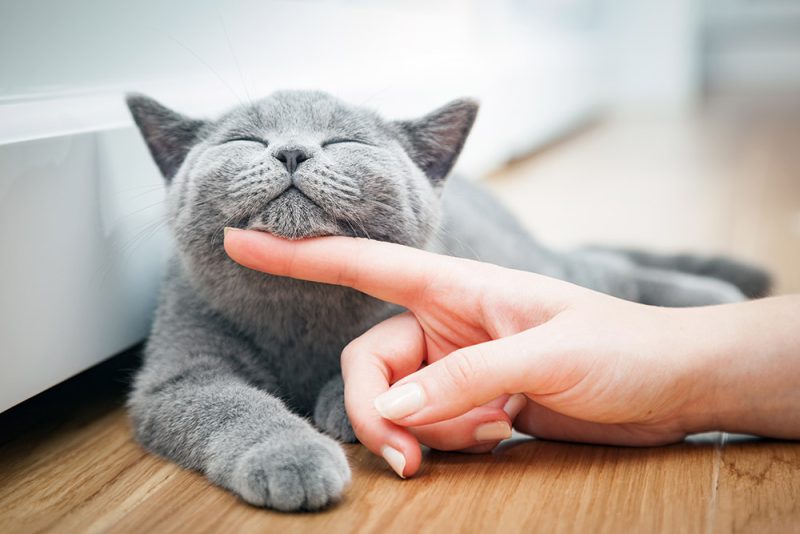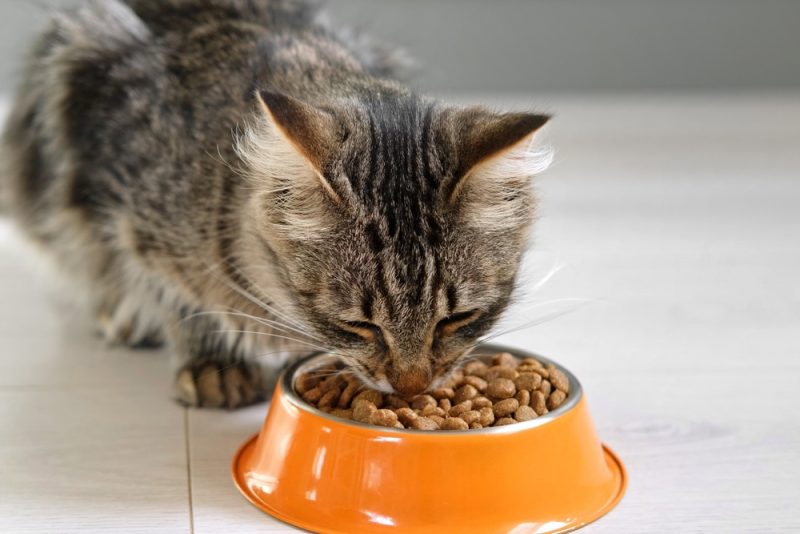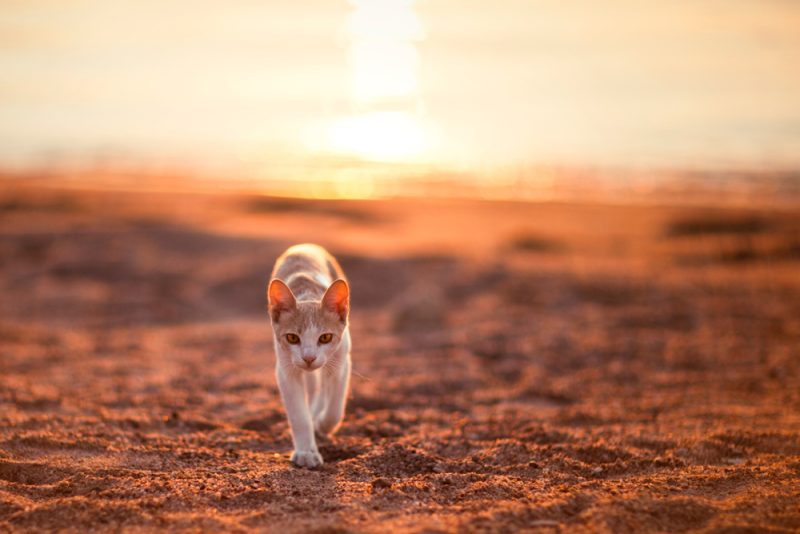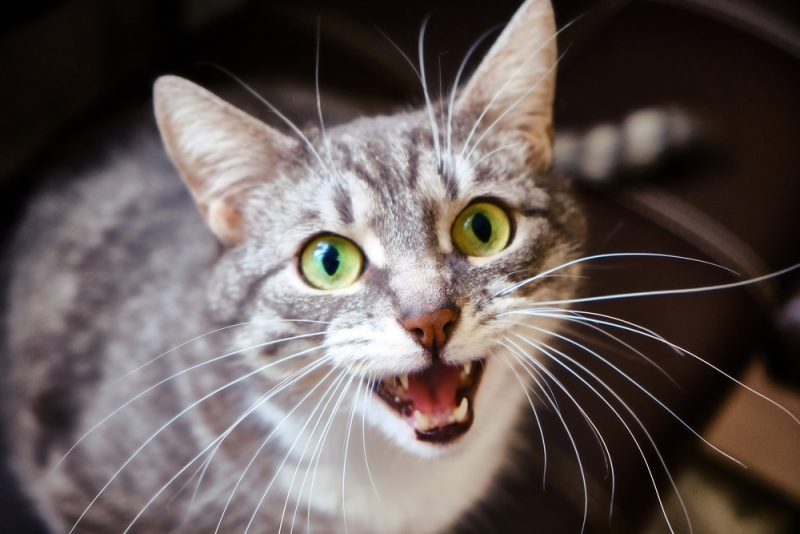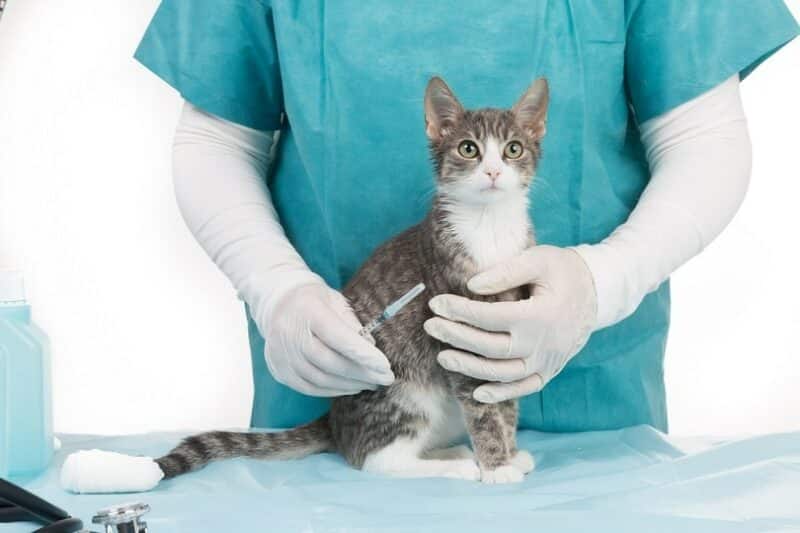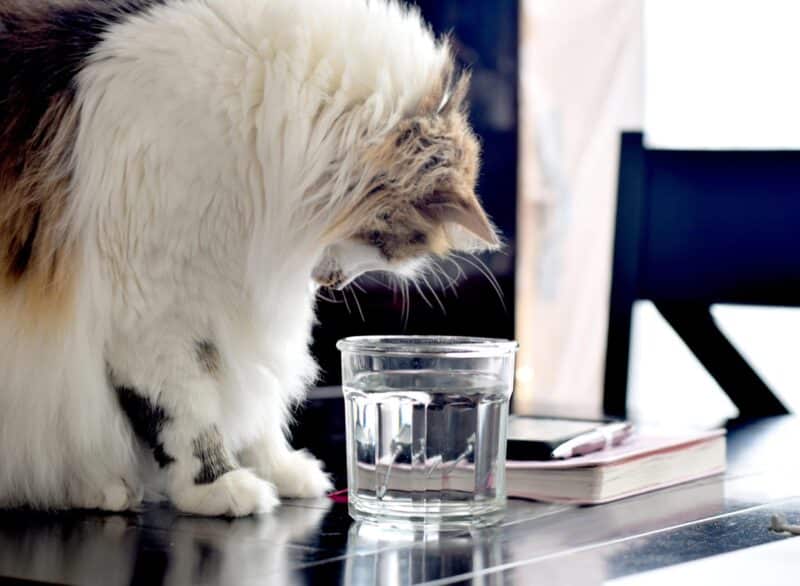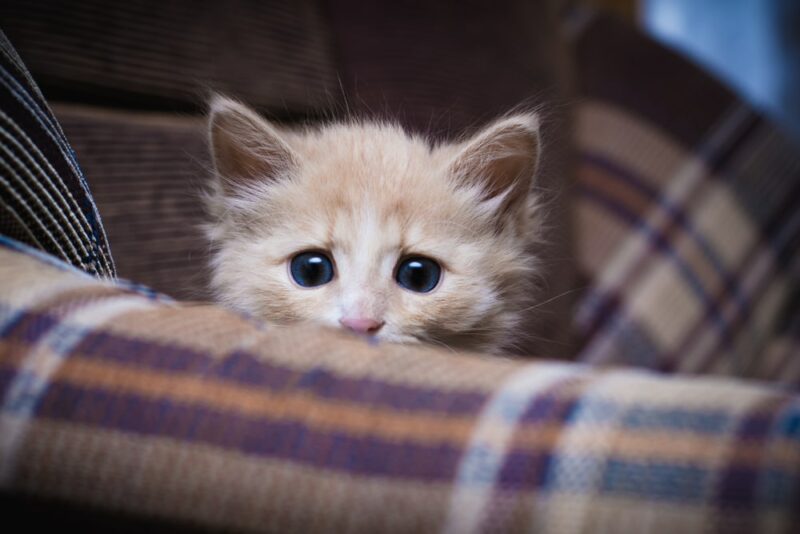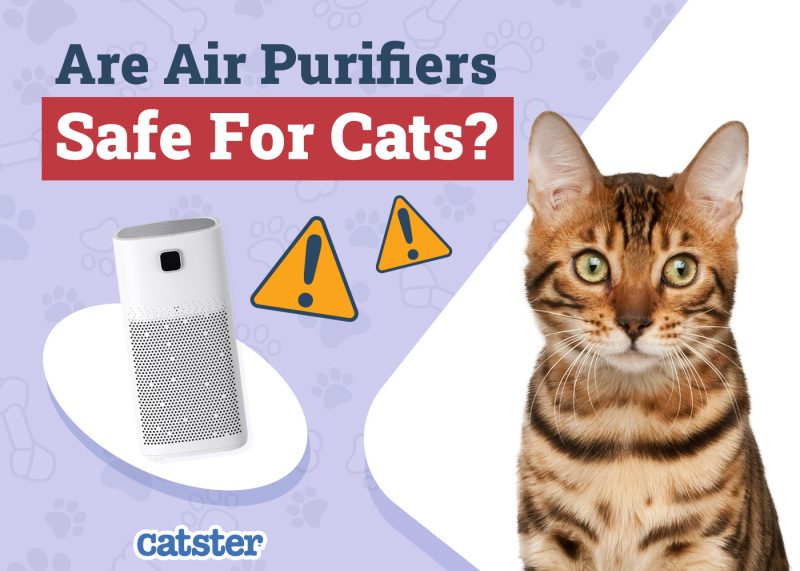Has your beloved feline friend suddenly started sneezing as if there’s no tomorrow? Cats sneeze for various reasons. Your kitty could have gotten wind of something that is disrupting their delicate sense of smell, or they are allergic to something in their environment. Either way, intermittent sneezes are typically not a major cause for concern unless your pet also starts avoiding food, losing weight, or becoming lethargic.
While benign nasal polyps or a malignant tumor could be underlying causes of spontaneous sneezes, keep reading to discover six common reasons that your cat might be sneezing all of a sudden.

The 6 Possible Reasons Your Cat Is Sneezing All of a Sudden
1. Upper Respiratory Viral Infections
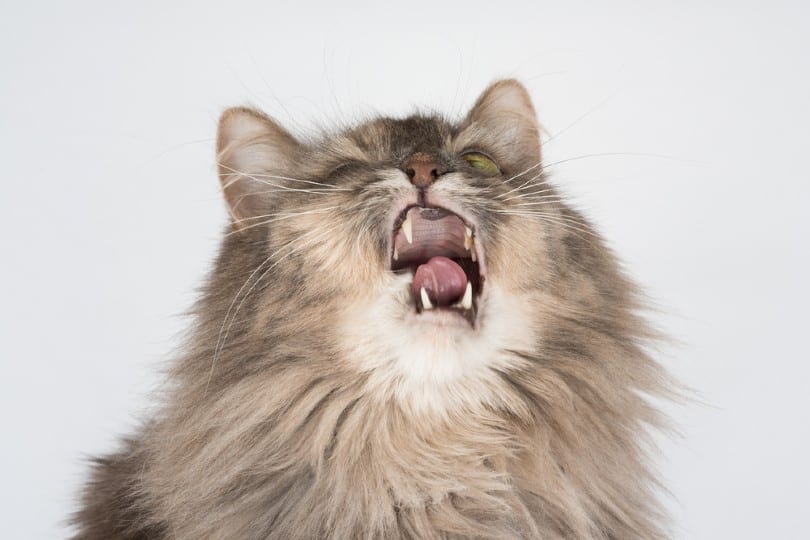
Cats, just like people, can suffer from upper respiratory viral infections. Cats that have recently been adopted from shelters or have been hospitalized and exposed to other cats are particularly susceptible to these infections. The most common culprits include feline herpes virus and feline calicivirus, both of which cause kitties to get stuffy and sneeze.
As a general rule, there’s not much you can do to “cure” a feline upper respiratory viral infection. Your companion’s body will need to do the work; it’s no different from the misery that ensues when you catch a cold and have to deal with a clogged nose and scratchy throat until your body gets into gear and takes care of business. Vaccinating your pet is the best way to prevent respiratory illnesses from developing.
If you need to speak with a vet but can't get to one, head over to PangoVet. It's an online service where you can talk to a vet online and get the advice you need for your pet — all at an affordable price!
2. Bacterial Infections
Bacteria can also cause sneezing, nasal discharge, and watery eyes associated with upper respiratory infections. In fact, it’s pretty common for upper respiratory infections to start as common viral issues and then progress into bacterial infections as your cat’s nasal and sinus passages become inflamed. Bacterial infections are often accompanied by fever and may require systemic antibiotics to resolve.
Bacterial dental infections are a common cause of sneezing in cats. Cats with serious dental issues often suffer inflammation that extends into the nasal and sinus cavities, causing sneezing and other signs that often resemble upper respiratory infections.
3. Allergies & Irritants
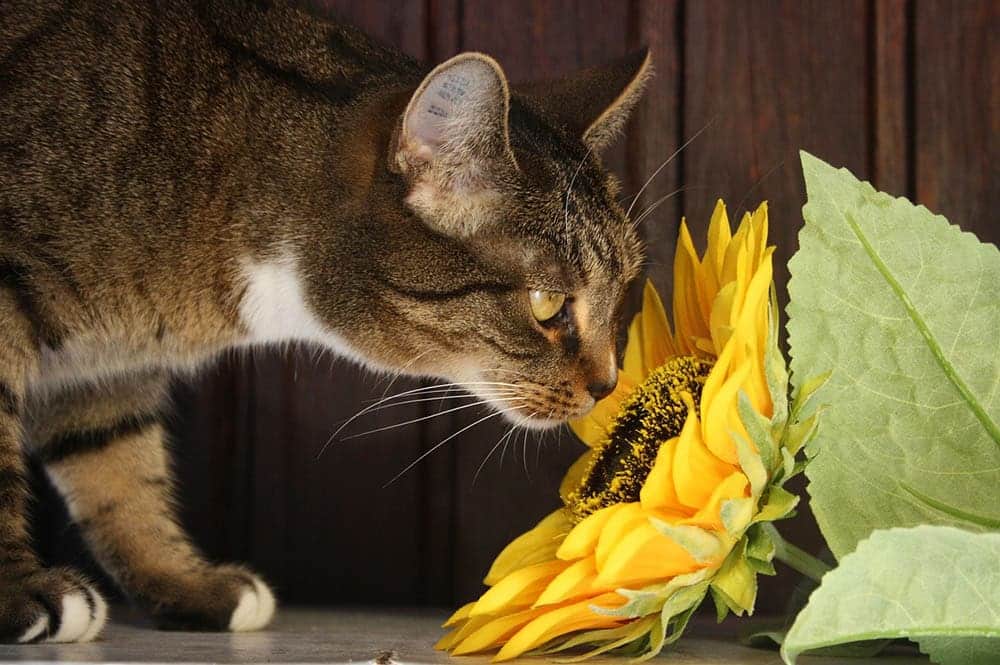
Just like humans, cats often sneeze when exposed to substances that irritate delicate nasal and sinus membranes like smoke, perfume, and mold. But some kitties have specific allergies. Cats can be allergic to a particular food or pollen or even something in their cat litter.
Keep in mind, however, that cats are far less likely to sneeze in reaction to allergens than humans. Cats suffering from allergies will typically spend time scratching and licking as well. Kitties with food allergies are notorious for removing large swaths of fur from their abdominal area and back while attempting to relieve the pruritus (itchy feeling) associated with a food allergy.
4. Nasal & Sinus Issues
Your cat can suffer from rhinitis and sinusitis, which are conditions in which the lining of the nasal passages and sinuses end up irritated and inflamed. These often occur as a result of an upper respiratory infection. Common signs include difficulty breathing, snoring, and ocular discharge. Treatment is usually straightforward and often involves basic supportive care, such as nasal washes, antibiotics (or antifungals, depending on what is determined to be the cause), and occasionally, decongestants.
5. Chronic Upper Respiratory Infections

If your cat has repeated sinus infections or upper respiratory illnesses, they can have chronic upper respiratory issues. The signs are often the same as what you see with viral and bacterial infections like rhinitis and sinusitis. Most veterinarians consider a cat’s upper respiratory illness chronic when it lasts for a few months or regularly comes back after treatment. Advanced diagnostics may be needed to isolate the specific pathogen and determine if a longer course or change in antimicrobial is needed to combat the illness, should signs last more than a few weeks.
Cats infected with viruses, such as feline herpes virus, often have relapses, particularly when stressed, so it is best practice to keep them as calm and comfortable as possible at home.
6. Foreign Bodies
Because cats understand the world largely through their sense of smell, they can sometimes get objects stuck in their noses after taking a sniff of a novel plant, person, or object. Blades of grass and other plant matter are usually the biggest culprits. Kitties are generally able to get rid of things like the occasional grass clipping or bits of pollen naturally.
If your cat doesn’t seem to get any relief and the foreign object seems stuck, contact your veterinarian for help. Home remedies can often do more harm than good in these situations. Treatment often requires light sedation to permit the irrigation of your pet’s nasal passages or the removal of the offending object with forceps (possibly with the aid of rhinoscopy). Your veterinarian may prescribe antibiotics to prevent infection and medication to soothe your cat’s irritated nasal passages.

Final Thoughts
Cats can sneeze for a variety of reasons, including allergies and infection. Either way, it’s good to know that cat sneezes aren’t usually a cause for concern as long as your cat’s nose isn’t producing thick yellow or bloody mucus. It’s best to contact your companion’s veterinarian if your cat’s condition doesn’t improve in 1–3 days or if you suspect that your four-footed friend has a foreign object stuck in their nose. Remember that early intervention of a suspected upper respiratory infection is often the best way to prevent it from becoming a larger problem down the road.
Related Reads:
Featured Image Credit By: Jupiter_79, Pixabay
